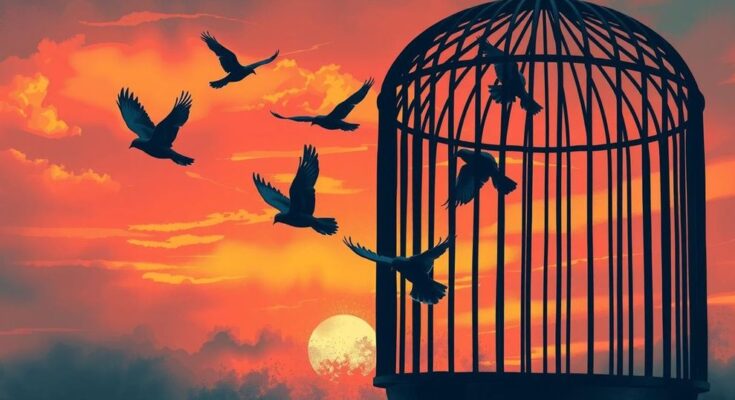Human rights groups are advocating for Ukraine to allow North Korean soldiers captured in combat to defect to South Korea, citing the threat of execution upon repatriation. This call follows reports of substantial North Korean military involvement in Russia. Activists emphasize the risks associated with forced repatriation, outlining the serious repercussions these soldiers could face in their homeland.
Human rights organizations are urging Ukraine to permit captured North Korean soldiers to seek refuge in South Korea instead of facing dire repercussions upon repatriation. In an open letter addressed to Ukraine’s embassy in Seoul, the Transitional Justice Working Group and eight additional groups cautioned that returning these soldiers to North Korea could result in severe punishment or execution.
This appeal follows the capture of two North Korean soldiers in Russia’s Kursk region in January. While President Volodymyr Zelenskyy has proposed exchanging these soldiers for Ukrainian prisoners held by Russia, activists contend that such actions would contravene Article 45 of the Geneva Convention, which prohibits the forced repatriation of individuals at risk of persecution.
Intelligence reports reveal that North Korea has dispatched between 10,000 to 12,000 troops to Russia since 2024, marking its most significant military involvement abroad since the Korean War. This deployment is a reflection of the expanding alliance between Kim Jong Un and Vladimir Putin, solidified during their June 2024 summit when a mutual assistance agreement was purportedly signed.
These North Korean forces predominantly function as light infantry, embedded within Russian units and utilizing forged documentation for disguise. They are tasked with maintaining defensive positions and facilitating trench warfare, while senior North Korean officers oversee operations from the rear. Ukrainian intelligence has identified three North Korean generals involved in this military effort, including Colonel General Kim Yong Bok, the commander of special forces.
The combat losses for North Korean troops have been significant, with Ukrainian intelligence estimating that over 3,000 soldiers—approximately 40% of the original deployment—have been killed or injured by January 2025. Following a three-week hiatus from combat, North Korea reportedly sent a second wave of 3,500 soldiers to conduct training in Russia’s Far East.
In return for its military assistance, North Korea has benefitted materially; Russia has increased its exports of oil and other vital supplies to Pyongyang. A South Korean intelligence-affiliated think tank estimates that North Korea’s arms exports earned approximately $540 million in 2023, predominantly through sales to Russia.
Furthermore, the Institute for the Study of War posits that North Korea perceives the conflict in Ukraine as a significant opportunity to evaluate its military capabilities against Western equipment, thereby obtaining invaluable combat experience. This alliance not only bolsters North Korea’s anti-Western rhetoric but may also alter strategic considerations on the Korean Peninsula.
This military collaboration breaches U.N. Security Council Resolution 1874, which prohibits North Korea from exporting military forces or armaments. The situation has prompted widespread international condemnation and renewed sanctions from both the United States and South Korea.
Human rights advocates assert that permitting North Korean POWs to defect could motivate other soldiers to surrender, potentially undermining Pyongyang’s support for Russia. According to South Korean lawmaker Yu Yong-weon, who visited Ukraine in February, one of the captured soldiers expressed a clear desire to defect, while the other remained uncertain about his intentions.
In summary, human rights organizations have urged Ukraine to allow North Korean prisoners of war to seek refuge in South Korea to avoid severe repercussions, including execution, upon repatriation. This appeal comes amid significant military collaborations between North Korea and Russia, raising serious human rights concerns and potential violations of international law. The situation underscores the complex geopolitical dynamics and the devastating consequences for North Korean soldiers caught in this conflict.
Original Source: www.dailynk.com




